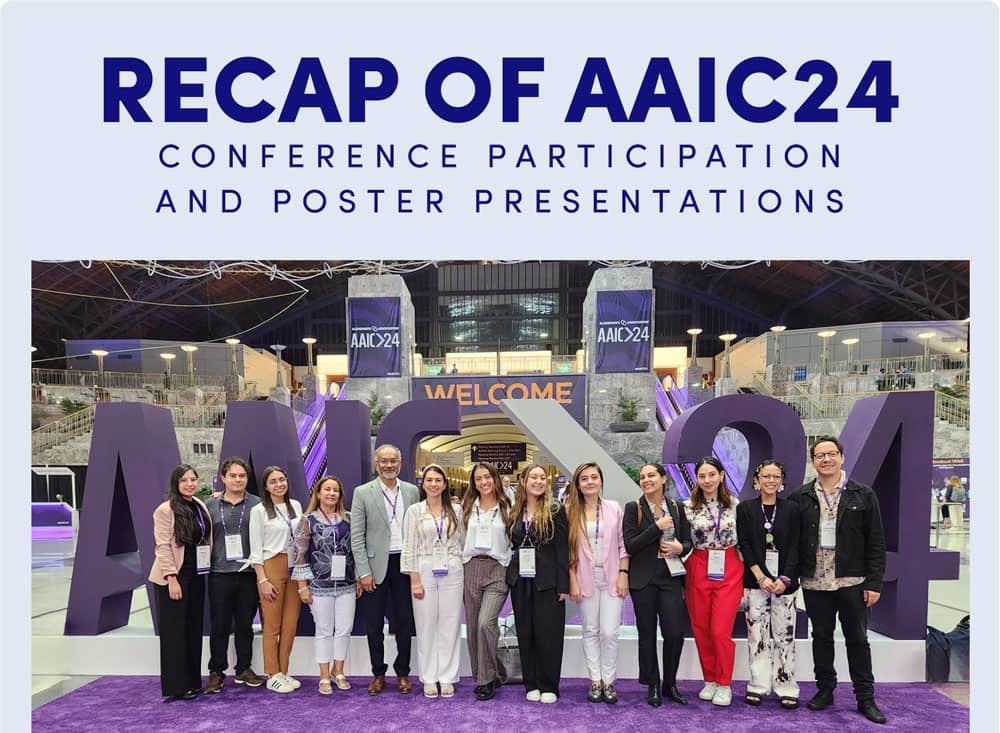
We hope this message finds you well. We are excited to share a recap of our recent participation in the Alzheimer’s Association International Conference (AAIC24), where we presented our latest research findings on IGC-AD1.
Our presence at the conference was marked by the presentation of several research posters, showcasing the promising results and potential treatments related to Alzheimer’s Disease.
Below is a brief overview of each poster we presented:
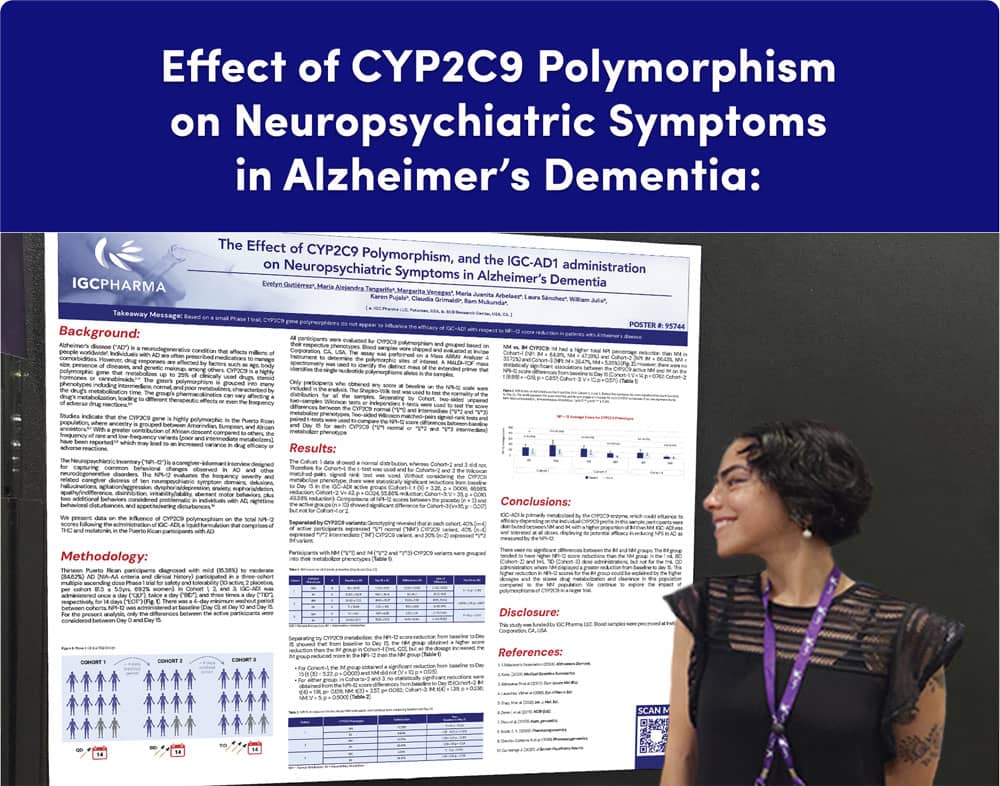
This study explored how variations in the CYP2C9 gene affect the neuropsychiatric symptoms in Alzheimer’s patients. Thirteen Puerto Rican participants were assessed using the NPI-12 scale following the administration of IGC-AD1. The results indicated that while intermediate metabolizers showed higher reductions in NPI scores, no statistically significant differences were found between normal and intermediate metabolizers.
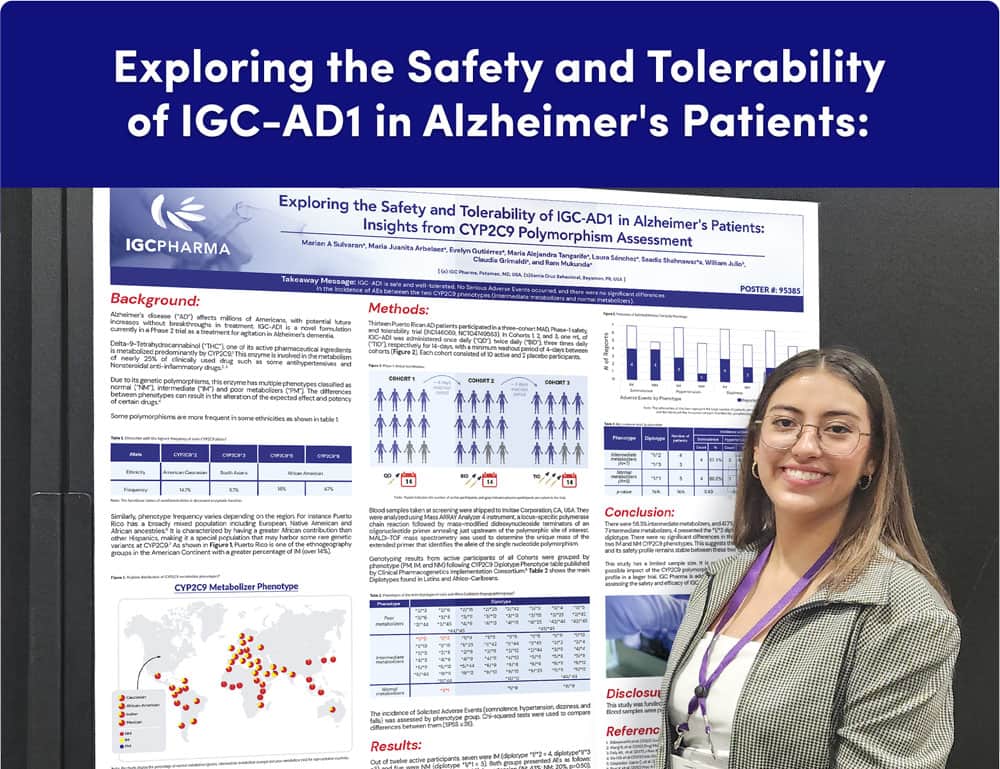
This Phase 1 trial focused on the safety and tolerability of IGC-AD1, a formulation containing THC and melatonin. The study involved 13 Puerto Rican AD patients and found that IGC-AD1 was safe and well-tolerated across different doses, with no significant differences in adverse events between normal and intermediate metabolizers of the CYP2C9 enzyme.
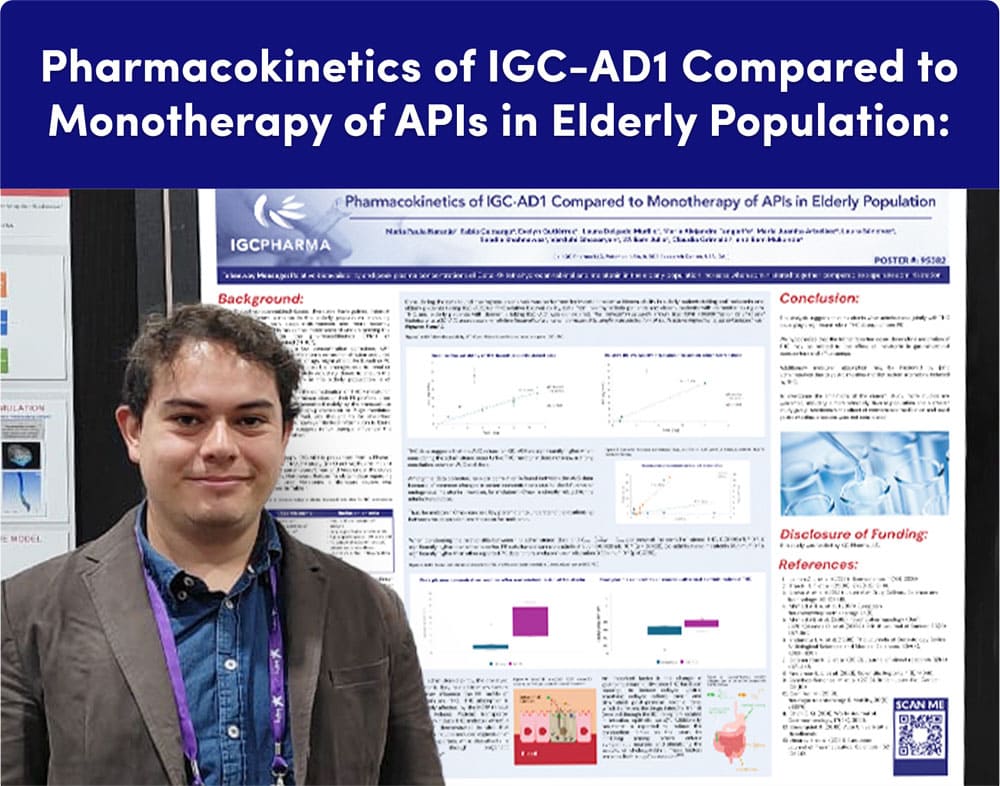
This poster highlighted the pharmacokinetics of IGC-AD1 compared to the individual administration of its active ingredients, THC and melatonin. The results suggested that the co-administration of these compounds increased their relative bioavailability and peak plasma concentrations, potentially enhancing their therapeutic effects.
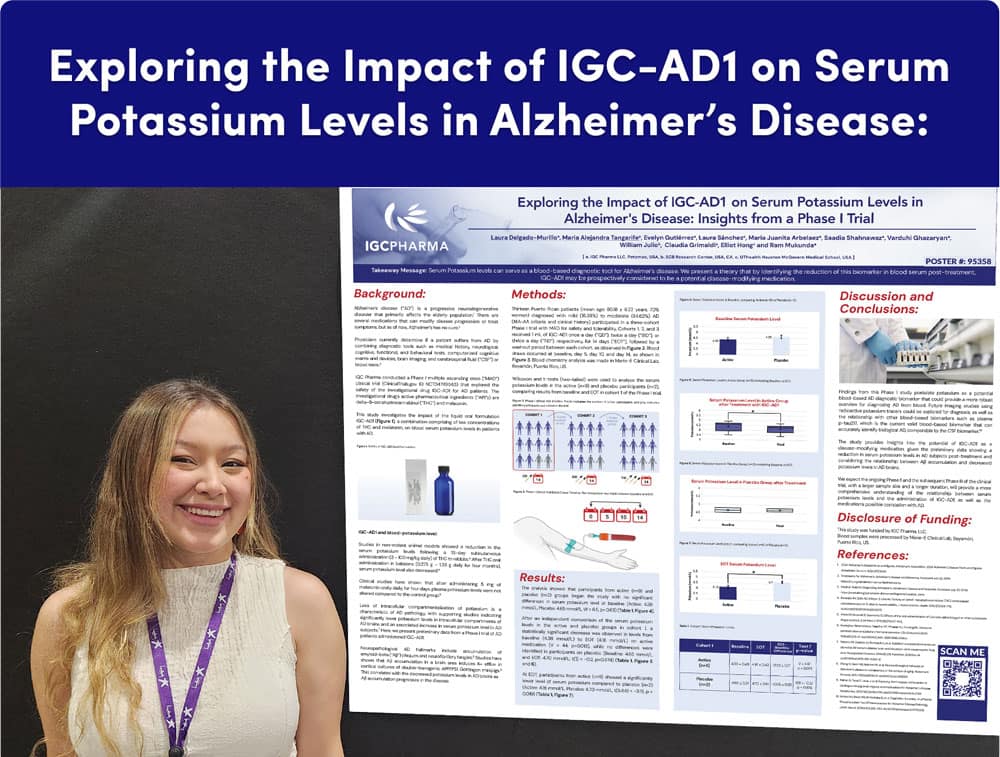
Our study investigated the impact of IGC-AD1 on blood serum potassium levels in AD patients. The findings indicated a significant decrease in serum potassium levels in patients treated with IGC-AD1 compared to placebo, suggesting that potassium could serve as a potential blood-based biomarker for AD.
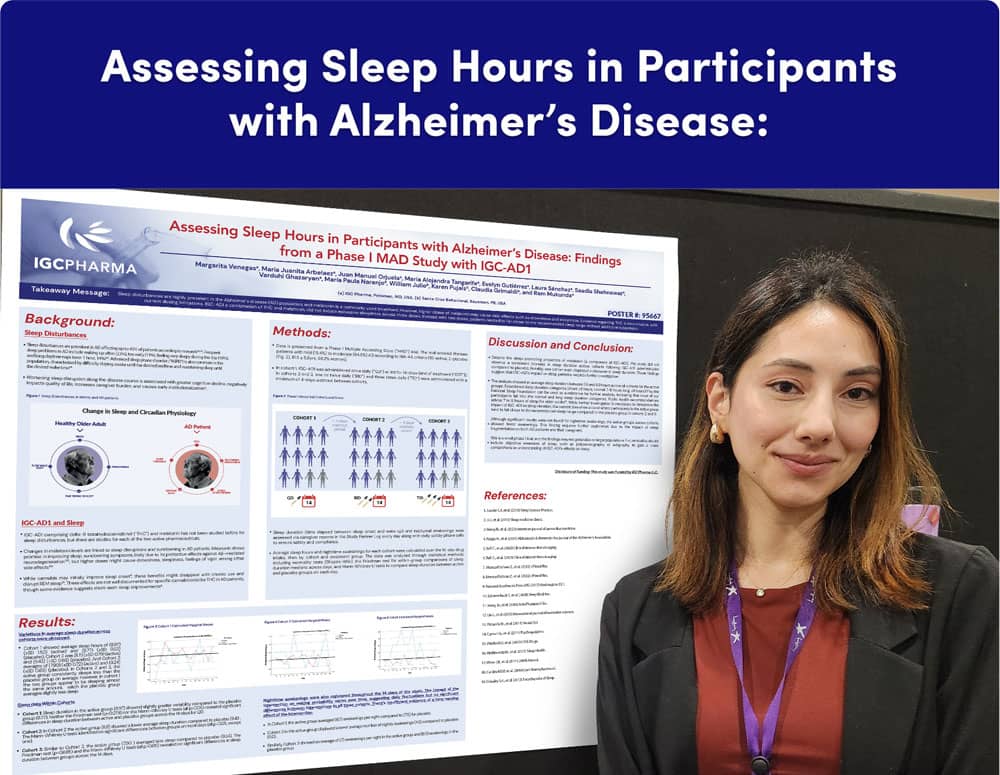
This research assessed the effect of IGC-AD1 on sleep duration and nocturnal awakenings in AD patients. While variations in sleep duration were observed, the data suggested that IGC-AD1 helped align patients’ sleep patterns closer to the recommended range, with fewer nighttime awakenings in active groups compared to placebo.
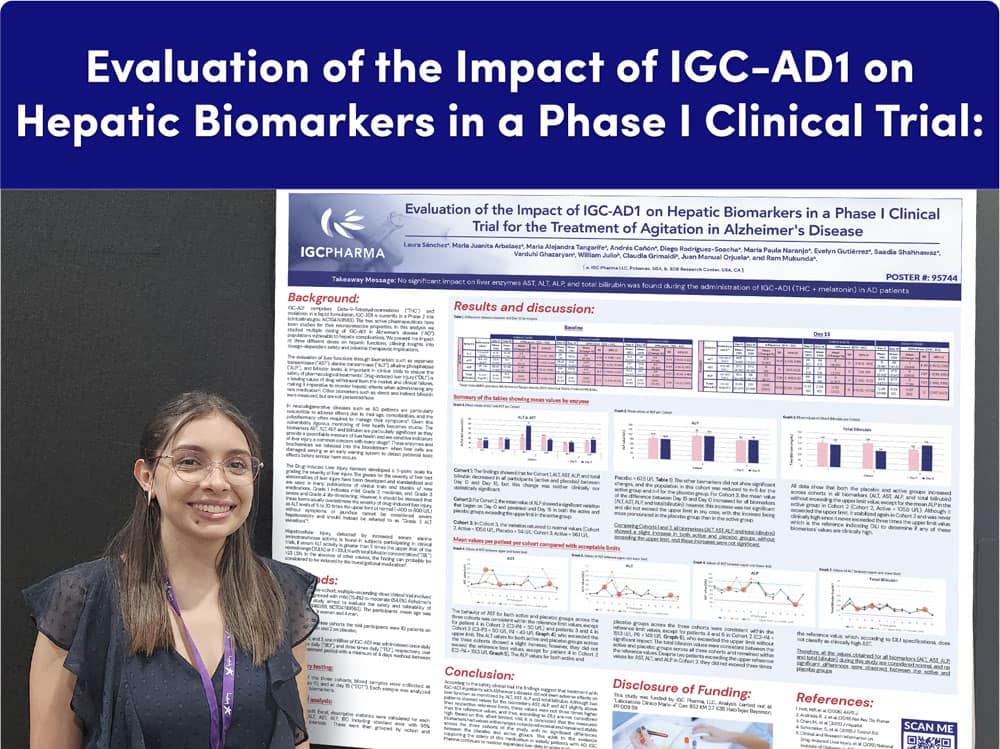
This poster presented findings on the effect of IGC-AD1 on liver enzymes such as ALT, AST, ALP, and bilirubin. The study concluded that IGC-AD1 did not significantly impact liver function, supporting its safety profile in elderly AD patients.
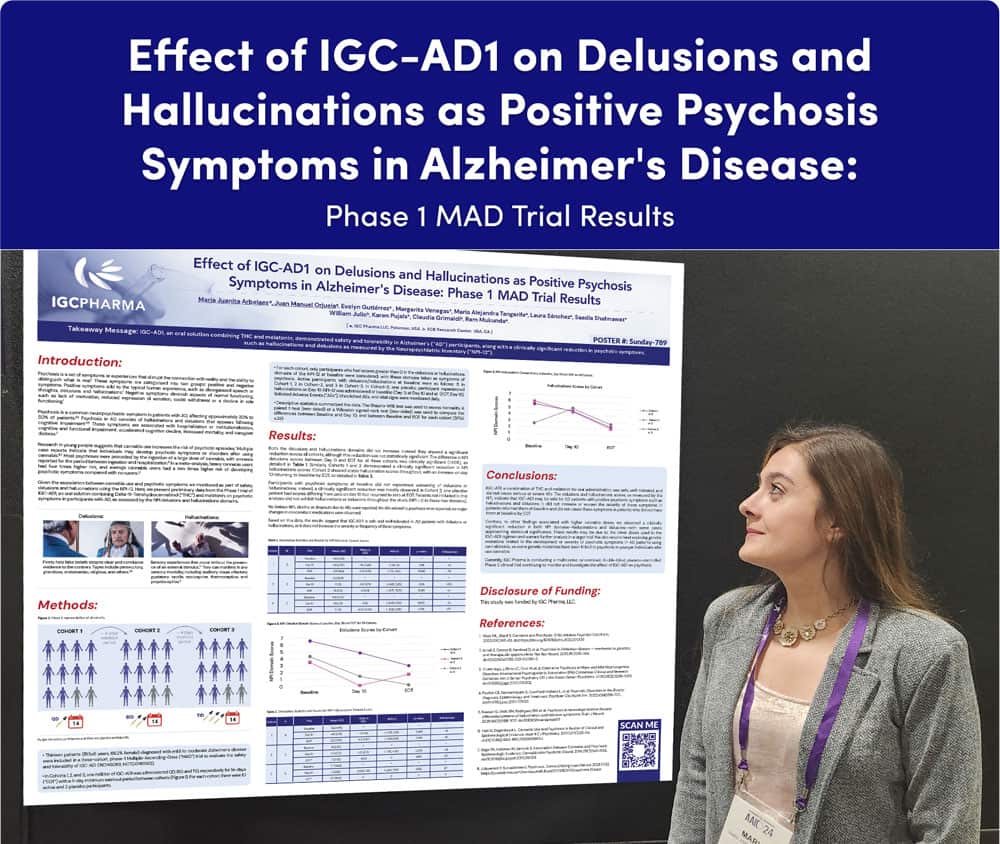
This poster presents the findings of a Phase 1 MAD trial that evaluated the impact of IGC-AD1, an oral solution combining THC and melatonin, on psychotic symptoms, specifically delusions and hallucinations, in patients with Alzheimer’s Disease (AD). The study focused on assessing the safety and tolerability of IGC-AD1. As part of the evaluation, the effect of the medication on the severity of delusions and hallucinations was analyzed, as measured by the corresponding domains of the Neuropsychiatric Inventory (NPI-12).
The results indicated that IGC-AD1 did not lead to an increase in delusions or hallucinations. On the contrary, all cohorts observed a clinically significant reduction in both hallucinations and delusions by Day 14 (EOT). These findings support the safety profile of IGC-AD1 and suggest that it could be safely and well-tolerated in patients with dementia presenting these symptoms.
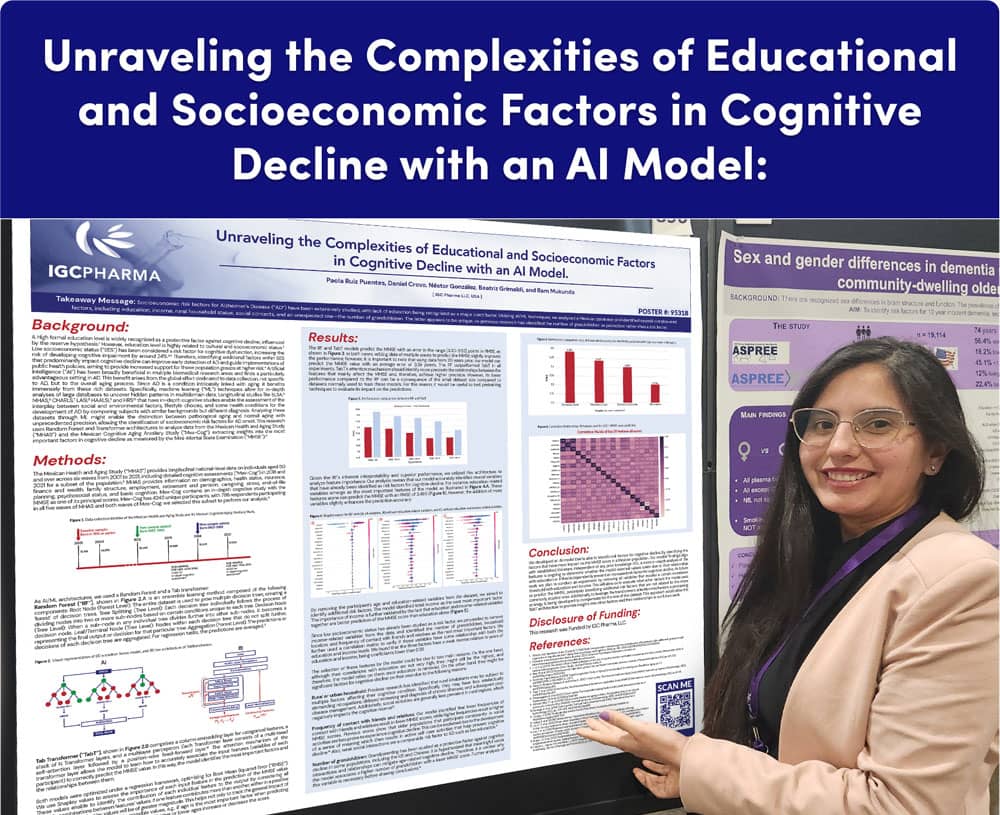
This poster presents a study using AI/ML techniques to analyze the Mexican Health and Aging Study (MHAS) database, identifying socioeconomic and educational factors influencing cognitive decline in Alzheimer’s Disease. The research highlights how variables like education level, rural/urban household status, and the number of grandchildren impact cognitive performance.
The findings suggest that these factors, when analyzed with AI, can offer predictive insights into cognitive decline and emphasize the importance of integrating socioeconomic considerations into clinical research.
AAIC24 Conference Recap
Our participation in AAIC24 was a significant opportunity to not only present our research but also to engage deeply with the scientific community and gain valuable insights into the latest advances in Alzheimer’s and dementia research. The conference, held in Philadelphia, covered a broad range of topics including the biological hallmarks of disease, biomarkers, testing techniques, technological advances, and clinical trial design.

The conference provided an excellent platform for networking with key figures in Alzheimer’s and aging research. Our team emphasized the growing importance of integrating not just biological results but also socially relevant factors such as cultural practices, language, and community engagement into clinical research. The diverse representation at the conference, particularly of women and the Latin community, highlighted the critical need for research across different populations and demographics.
Key discussions at AAIC24 reinforced that IGC Pharma’s approach to targeting neuroinflammation is ahead of the curve, as this strategy is now gaining traction in academic research. Additionally, the importance of promoting lifestyle changes and non-pharmacological interventions in the early stages of Alzheimer’s was a major focus of the event.
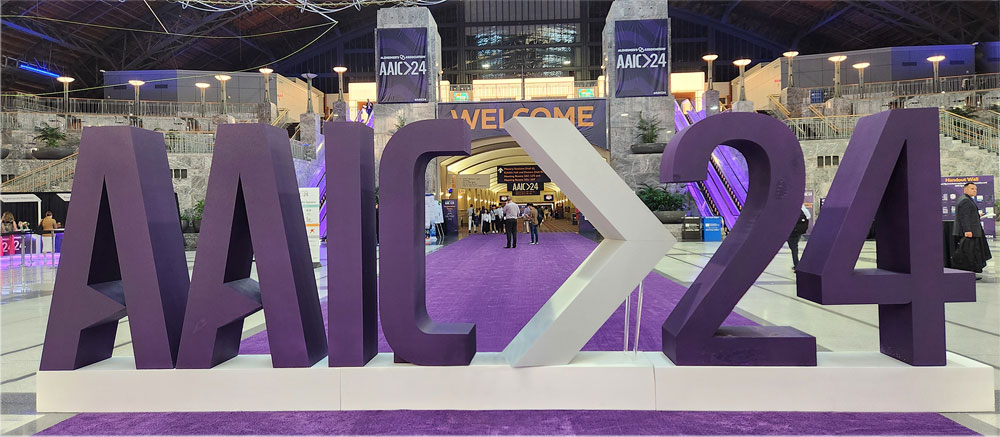
The conference also underscored the necessity of analyzing the efficacy and safety of treatments by sex, as different populations may metabolize drugs differently, leading to varying outcomes. Our team found the discussions on astrocytes, cholesterol metabolism, and gene methylation particularly intriguing, opening up new avenues for future research.
Attending AAIC24 left our team feeling inspired and motivated to continue advancing our research, confident that our efforts are well-aligned with the global needs of Alzheimer’s patients. We believe the insights gained at AAIC24, combined with our ongoing work, will contribute to revolutionary changes in the diagnosis, treatment, and overall approach to Alzheimer’s Disease.
Thank you for your continued support and interest in our research.
Best regards,










